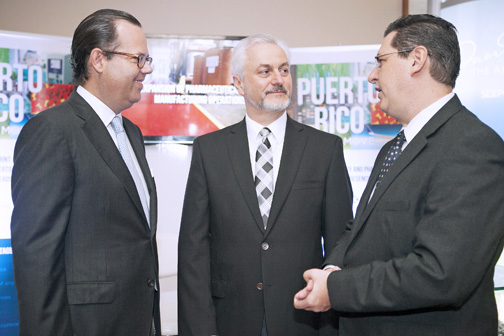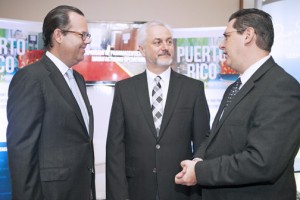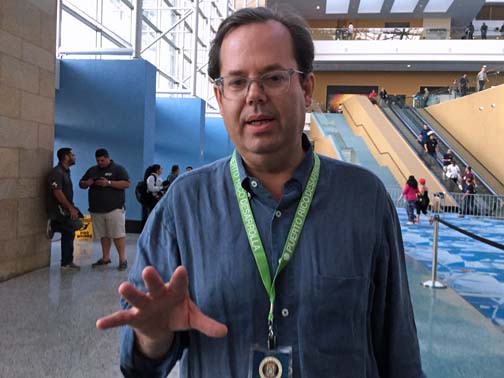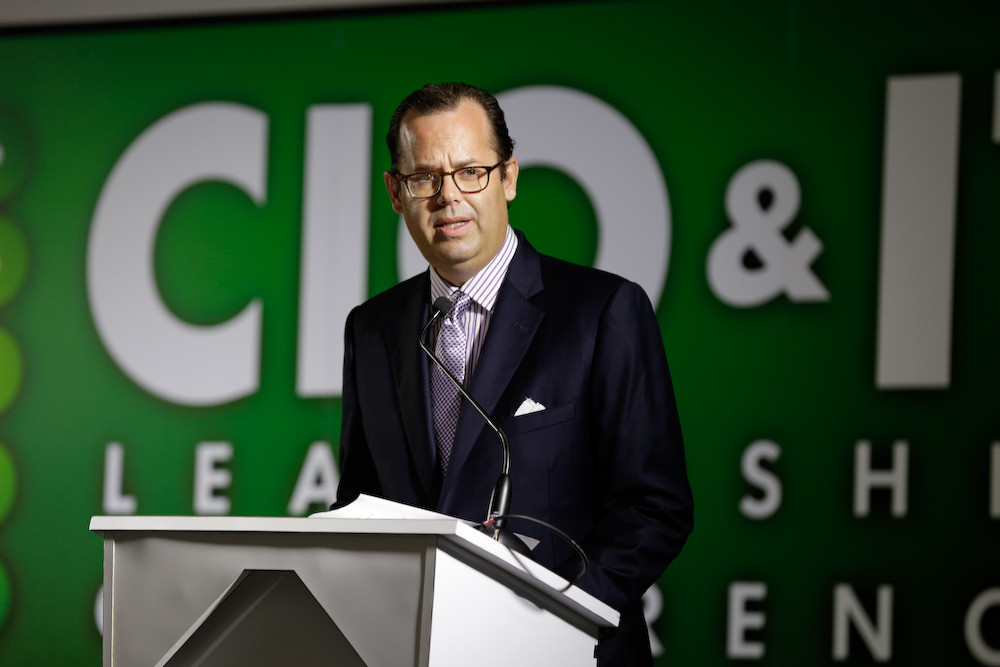Exec Prouty extolls P.R.’s virtues as place to do business


From left: Nicholas Prouty, CEO of Putnam Bridge Investments, Phil Schneider, chairman of the Site Selectors Guild, and Antonio L. Medina-Comas, executive director of the Puerto Rico Industrial Development Company.
The laws set forth by the current administration to lure investors and companies to Puerto Rico are not the only attractions the island has to offer, said Nicholas Prouty, CEO of Putnam Bridge Investments, to a roomful of business location experts and economic development professionals.
Prouty, a former east coaster who became a local resident in mid-2013 upon picking up the assets of the Marina Puerto del Rey in Fajardo and later the Ciudadela mixed-use complex in Santurce, told participants of this year’s Site Selection Guild conference in San Juan that Puerto Rico’s skilled labor force is it’s “great secret weapon.”
“I was recently interviewed by the Wall Street Journal and asked if all these great new tax laws were the drivers behind my decision to relocate, and the answer is no. As much as they help, I have never made an investment decision based on tax treatment — a deal must stand on its own before even considering that element of the equation,” he said, referring to Laws 20 and 22 that offer tax breaks and incentives to individuals and companies setting up businesses on the island.
“But tax laws can be powerful motivators nonetheless, and the more I understand the local tax structure, the more significant I think it is, particularly for many of the businesses you work with — and for that reason alone Puerto Rico ought to be on your radar screen,” he said Tuesday.
“And there is something else — something I didn’t fully understand until I moved here … Puerto Rico’s great secret weapon … the quality of [its] workforce,” he said.
“The government mentions it a lot when promoting the island, and I’m here to tell you they fall way short in their pitch,” he said, defying the roomful of professionals gathered to “find a workforce as quality-conscious as the one here.”
“My business includes the construction of large, complex facilities in tight building envelopes … sometimes even over the water. Error tolerances are extremely tight and everything must be planned and executed with military like precision,” he said.
“Managing the interaction among the various ecosystems of teams, contractors and suppliers is a thing of beauty in Puerto Rico,” he said, praising the “deep appreciation and rich tradition of working together in teams.”
So when you add that component — a workforce he said cost between 30 percent and 50 percent less than their mainland counterparts — to your site-selection decision, Puerto Rico becomes even more attractive, he said.
The Site Selectors Guild conference puts Puerto Rico on the map as an international hub of business development and site selection.
In his address, Prouty brought to light the government’s willingness to negotiate, especially when property values are low and tax benefits are high.
“If your client is in the service industry, you can now benefit from Law 20, which incentivizes service exports from Puerto Rico, and if you want to relocate a team of executives and managers, they can now move to the island under Law 22 and pay 4 percent in taxes. That’s right, for every $100,000 in income, you pay $4,000,” he said.
“The savings are monumental – you can lock in the world’s lowest corporate and personal taxes for the next 20 years, and you don’t have to give up that navy blue passport,” he added.









